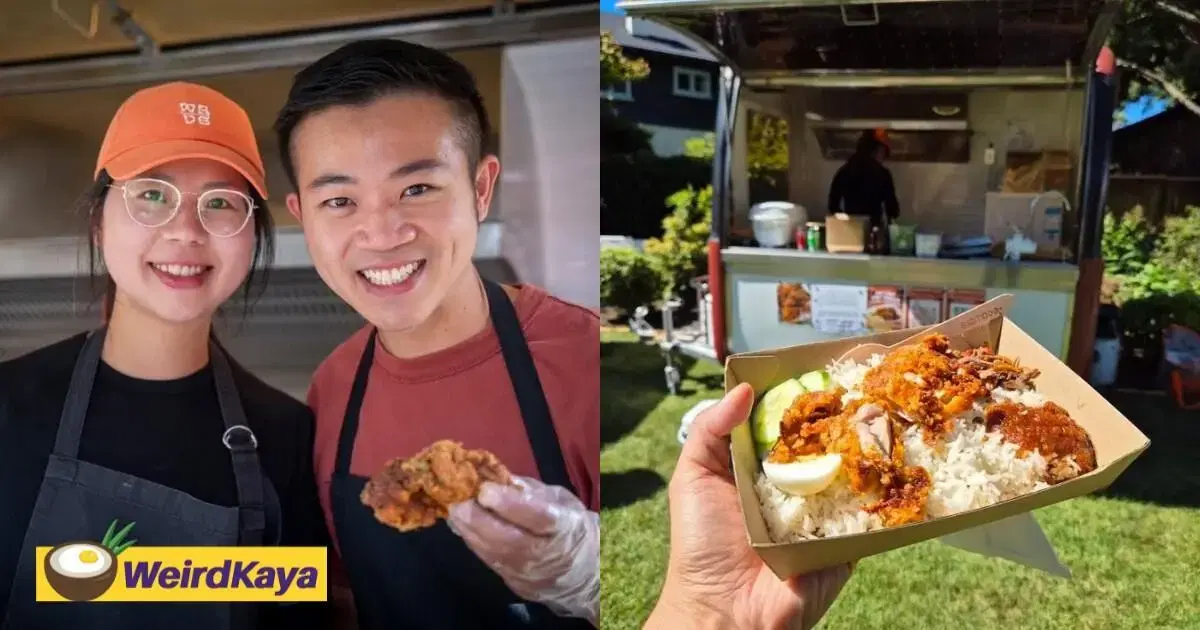Exclusive Story by WeirdKaya - Proper accreditation to WeirdKaya and consent from the interviewee are required.While most people picture one with a Master’s degree working at a corporate office, one Malaysian in New Zealand is doing something entirely different.
Meet Wei Hong, a Master’s degree holder in IT who’s bringing a slice of Malaysia to the land of kiwis, where he wakes up at 5am every Sunday to sell nasi lemak after a full week at a factory.
Not your typical 9-5 job
Speaking to WeirdKaya, Wei Hong said he came to New Zealand in 2020 and has been living there since, where he currently works full-time as a machine operator and fish filleter at a food processing factory.
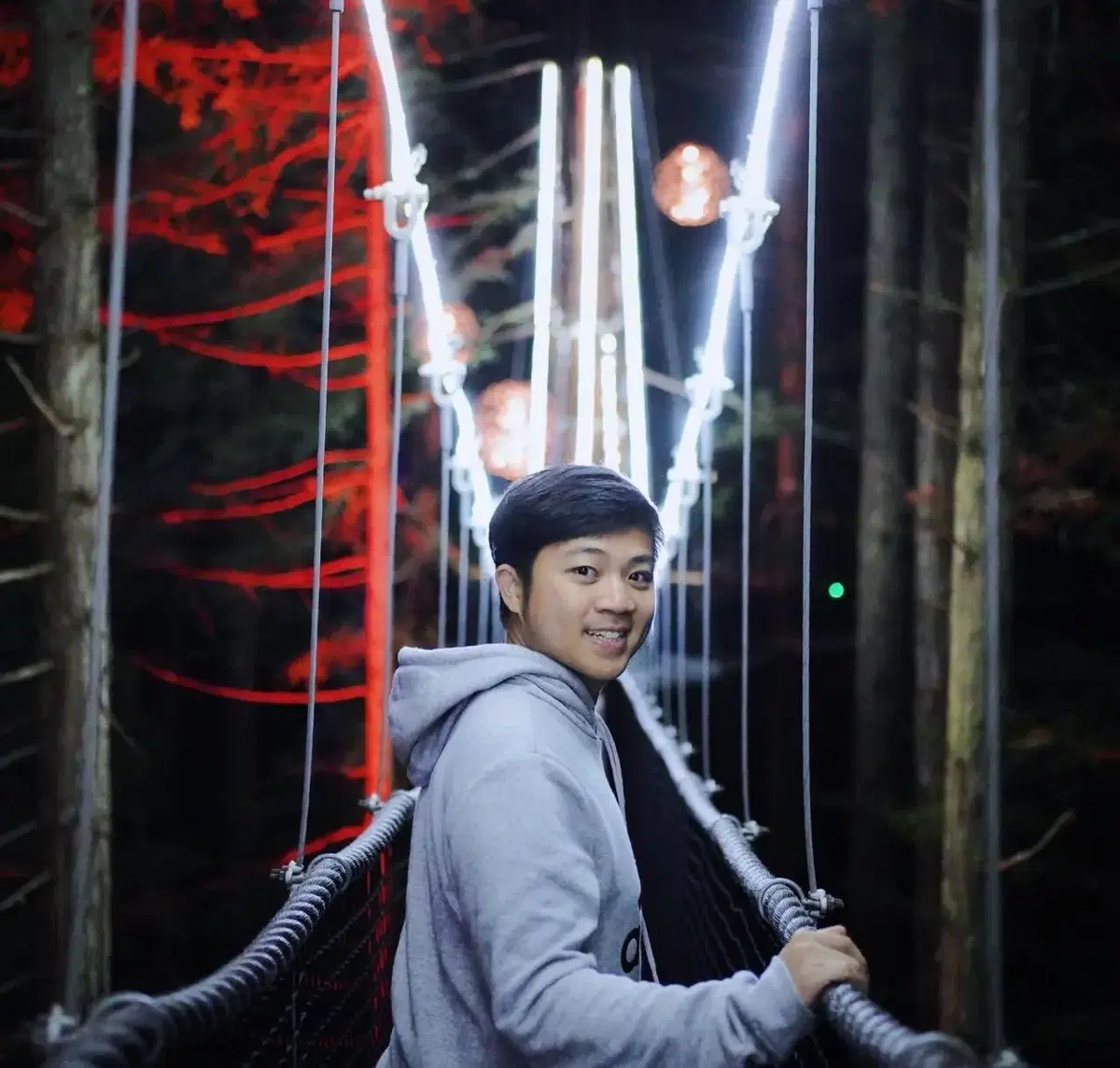
“For now, I haven’t started in the IT field yet and work full-time while running the nasi lemak stall on weekends to earn extra income.
While having Master’s degree and working a factory job isn’t something many Malaysians would openly share. But for Wei Hong, it’s a choice he wears with pride.
“I know some people might look down on it, but I’ve learned that there’s no shame in doing what you need to do to survive and to keep growing,” he said.
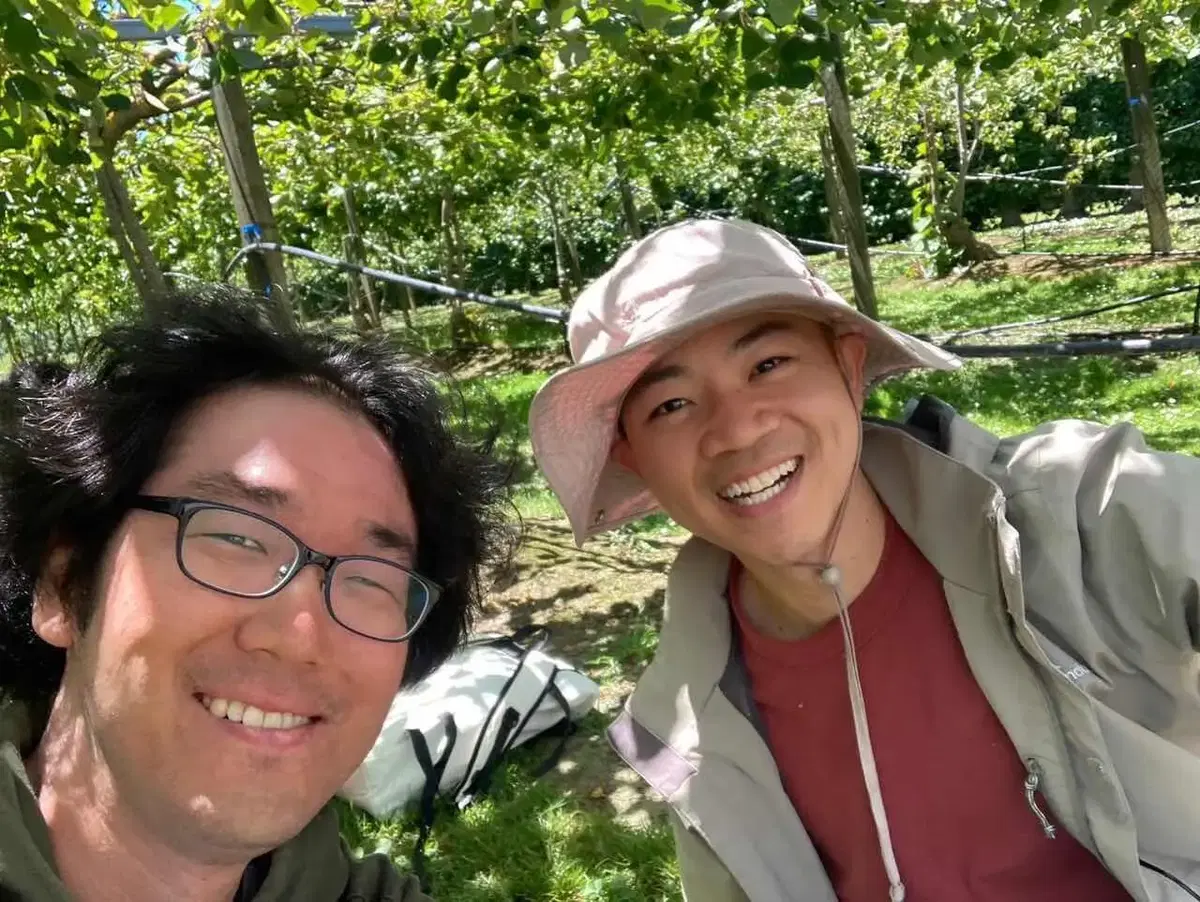
A taste of home in every pack
Like any Malaysian living abroad, Wei Hong sorely missed the taste of home and decided to recreate the irresistible draw of nasi lemak along with his partner.
“We realised Malaysian food wasn’t very common here. Since nasi lemak is such a signature dish, we thought it would be a great way to introduce our culture.
“Starting up the stall wasn’t easy. Most locals didn’t know what nasi lemak was, so we had to educate customers and find ways to source authentic Malaysian ingredients,” he shared.
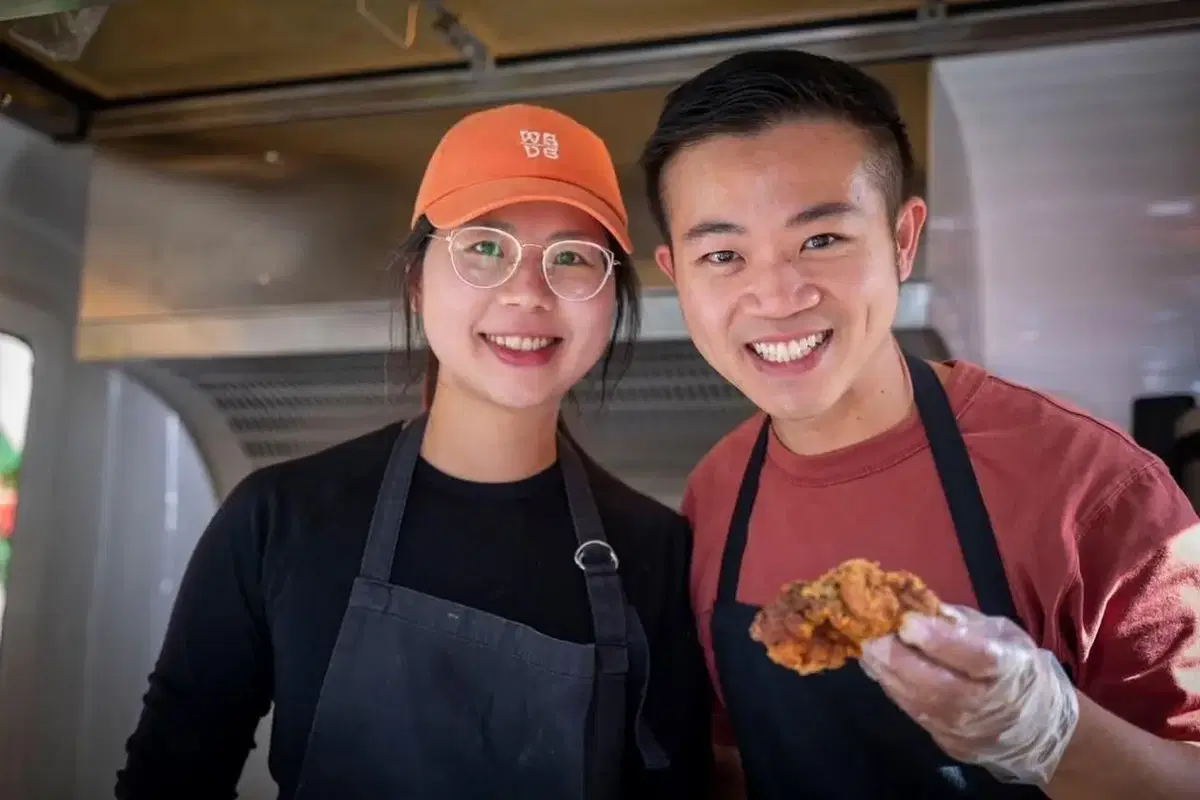
But little by little, word began to spread and Wei Hong has since built a loyal customer base as they kept coming back for more after trying his nasi lemak just once.
“Sometimes customers even send us photos of nasi lemak they tried in Malaysia years ago. It’s heartwarming to know our food brings back memories for them,” he quipped.
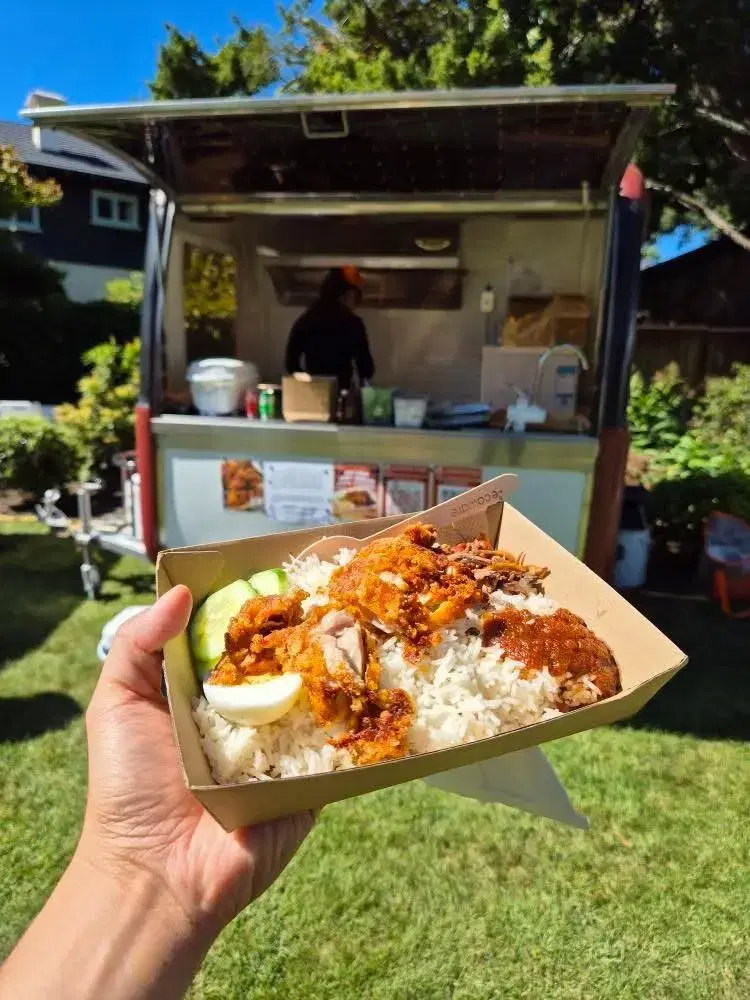
No off days
For Wei Hong, every Saturday is dedicated to preparation, while on Sundays, he would wake up at around 5am, start cooking, and open for business at 8am until it closes at 1pm for clean-up — just in time for him to prepare for another week of factory work.
Despite the packed schedule, he finds joy in the little moment, when customers who return weekly, people who ask about Malaysia, and the satisfaction of seeing empty food containers by the end of the day.
It’s like working seven days a week. It’s tiring, but I enjoy it. Seeing people enjoy my food is the best kind of motivation as it reminds me why I started this in the first place.
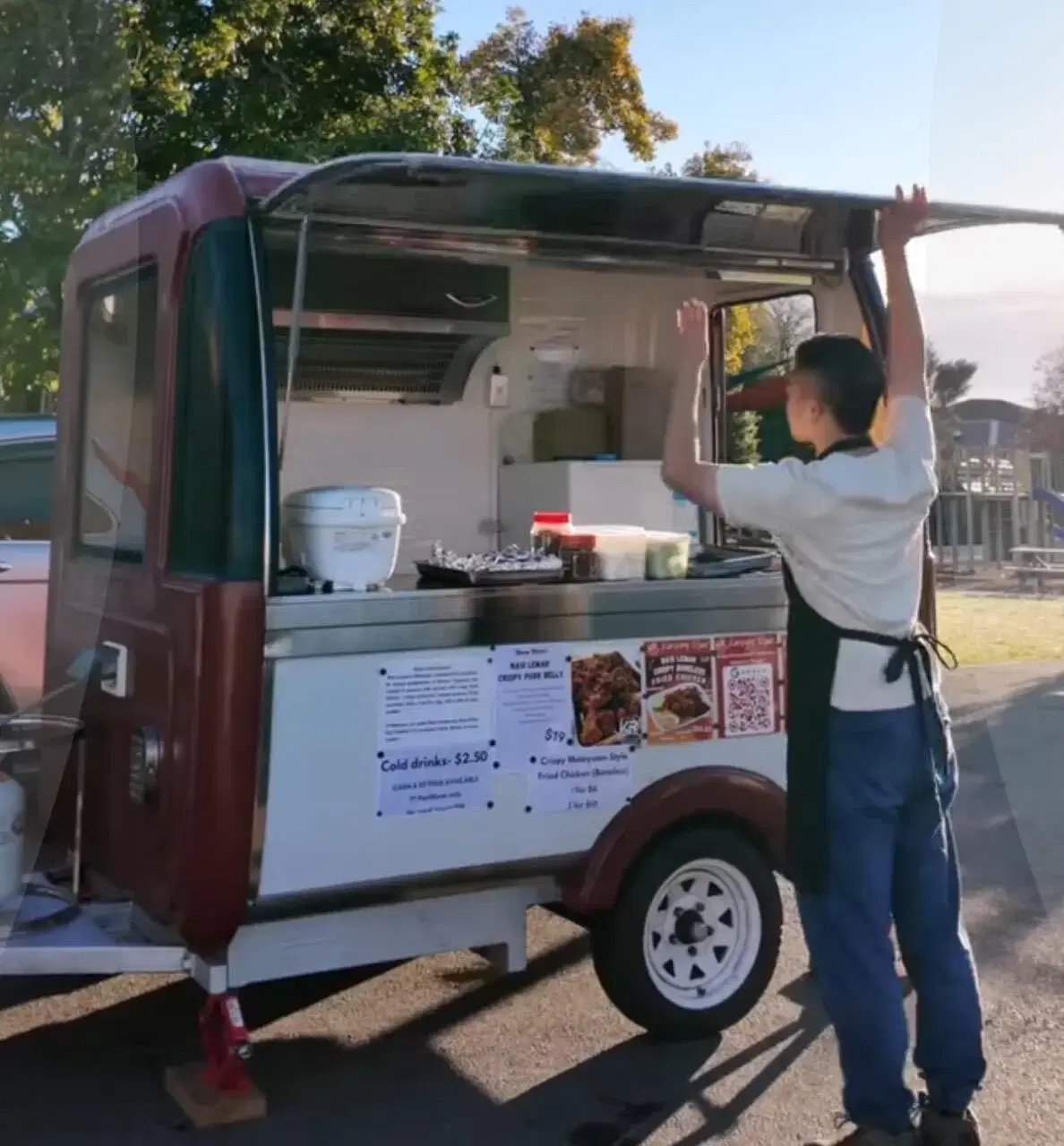
Since Wei Hong and his partner don’t own a restaurant or café, everything is prepared from home and sold from a simple market stall, meaning they have to be extra careful with logistics, hygiene, and presentation.
“We don’t have a big setup, but we try to make everything clean and consistent. Even if it’s a small stall, it represents who we are.”
They’ve also had to learn how to adjust the spiciness level and portion sizes to suit the local palate without losing the core essence of nasi lemak.
“Some can really handle the sambal. Others, not so much. But they always appreciate that it’s homemade and authentic.”
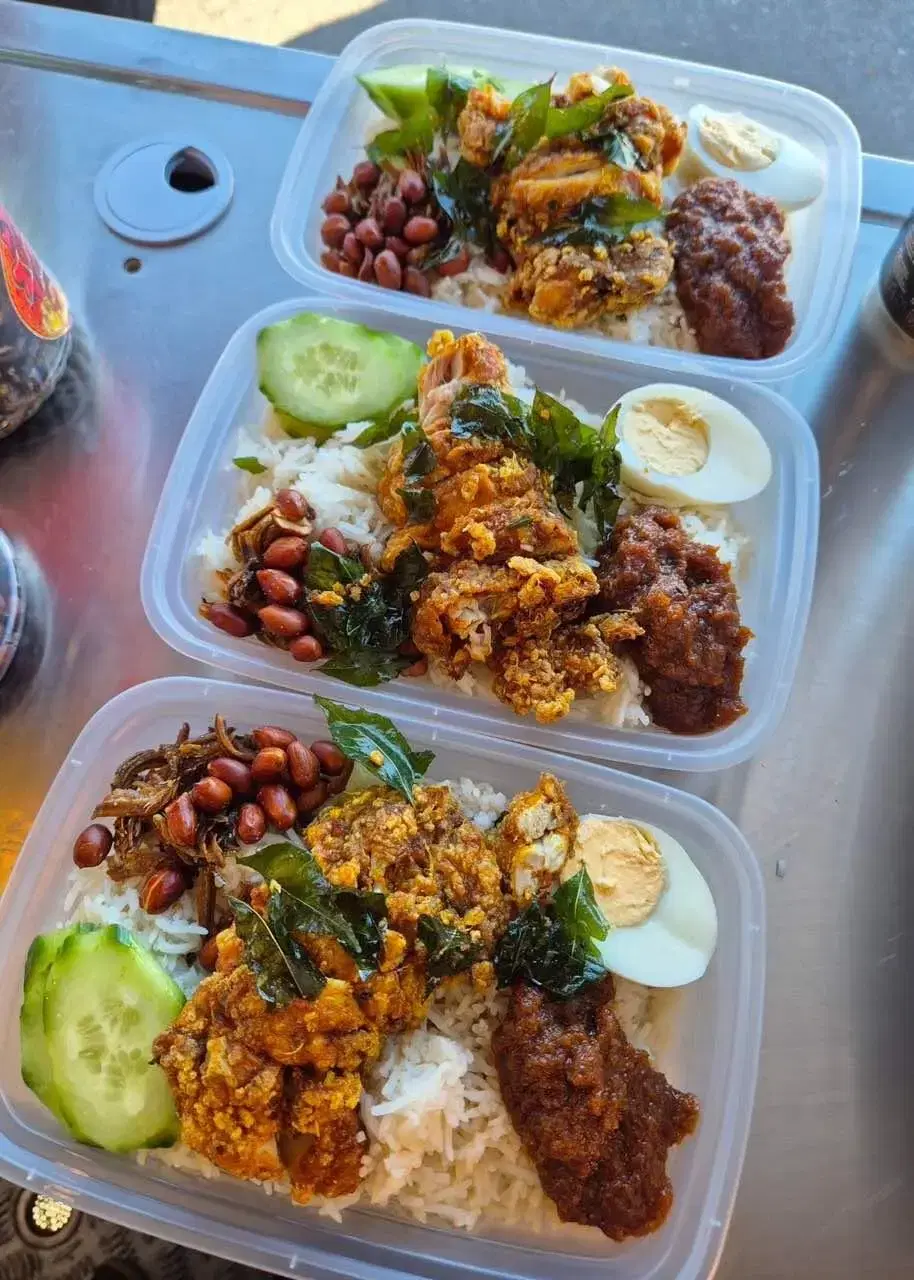
More than just food
For Wei Hong, nasi lemak isn’t just a dish—it’s a memory, a symbol, and a way to stay connected to his roots while living thousands of kilometres away from home.
To fellow Malaysians considering starting something abroad, Wei Hong’s message is simple but powerful:
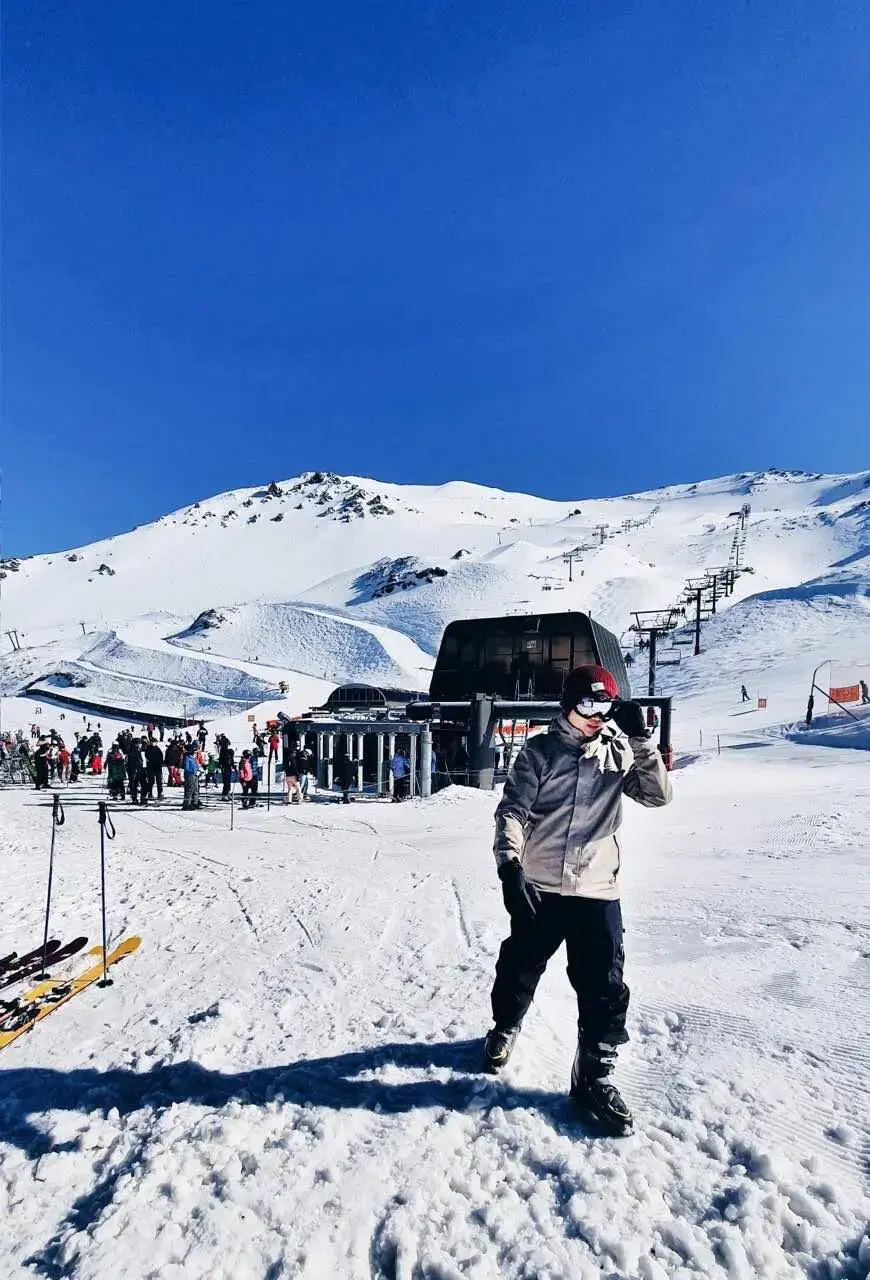
If you want to do something, just do it. Don’t wait until it’s too late. Do something you’ll be proud of and something that makes your country proud too.
“I hope that by sharing his journey, others will feel inspired to pursue their own paths even if it doesn’t follow the typical success story.
“Whether it’s a food stall, a creative project, or a new job, take that first step. It could change your life.”
Exclusive Story by WeirdKaya – If you wish to reproduce this story, please ensure that you obtain consent from the interviewee to maintain factual accuracy and avoid the potential spread of misleading information.
If referencing or using any information from our story, we kindly ask that proper credit is given, along with a backlink to WeirdKaya, as acknowledgment of the efforts made by our editors in sourcing and conducting interviews.READ ALSO:



